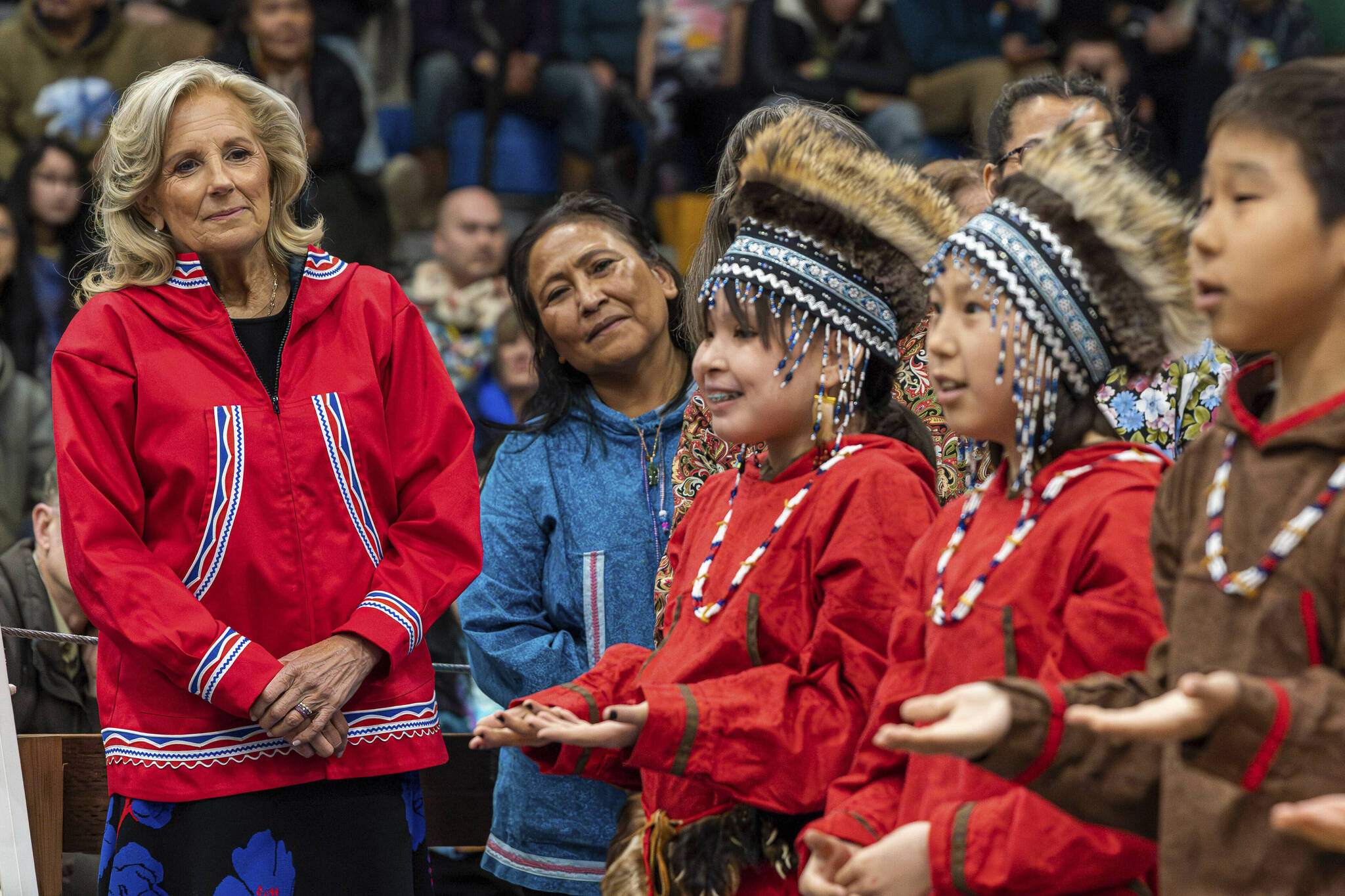ANCHORAGE — For years, when the tiny Alaska Native village of Rampart’s awful internet service would go down, the only way to reach the outside world was to await the small airplane that touched down daily with supplies and the occasional visitor.
“We had no way of getting ahold of anybody out of Rampart other than going to the airport and telling the pilot,” said tribal administrator Margaret Moses. The pilot would relay messages — including word of medical emergencies — after flying 100 miles to Fairbanks.
The Koyukon Athabascan village of about 50 people eventually upgraded to a satellite company, at a hefty price of $3,000 a month.
It’s one of scores of Alaska Native villages where spotty and expensive internet coverage is the norm — if it’s available at all. And such service can be the only lifeline for remote communities, many of which can be reached only by boat or plane.
Now, efforts to address inequities in a longstanding digital divide are underway across the nation’s largest state by land area, particularly in Alaska Native villages, with funding provided by the 2021 infrastructure bill and other federal programs as part of the Biden administration’s Internet for All initiative.
Overall, the bill provides $65 billion in funding to improve broadband access in the U.S. Every federally recognized tribe, including 229 in Alaska, can receive up to $500,000.
Jill Biden visited the southwest Alaska community of Bethel late Wednesday on a stopover to Japan to highlight progress being made under the program, including the award of $125 million last year for two broadband infrastructure projects in the area. In doing so, it was the the first visit by a first lady to Bethel, which is about 400 miles west of Anchorage and accessible only by air.
“With high-speed internet, you’ll have better access to critical health care, new educational tools, and remote job opportunities,” the Anchorage Daily News reported Biden told a crowd at the local high school.
“It will change lives. It will save lives,” said Biden, who was accompanied by Interior Secretary Deb Haaland, U.S. Rep. Mary Peltola, an Alaska Democrat, and Alaska first lady Rose Dunleavy.
Dunleavy said the broadband investments in the Bethel area will help create jobs. She told the crowd: “Rural Alaska has always been on the wrong side of the digital divide until today.”
An additional $5 million in grants were awarded Wednesday, including $500,000 to the Hoonah Indian Association of southeast Alaska to help train people for jobs created by a tourism boom.
Nine other $500,000 grants were awarded to three tribes in California, helping increase the speed to 314 tribal households for the Soboba Band of Luiseno Indians; providing equipment and training to the Seminole Tribe of Florida; and upgrading 17 households with high speed internet service in the Match-E-Be-Nash-She-Wish Band of Pottawatomi Indians (Gun Lake) in Michigan.
Other grants went to tribes in Minnesota, Virginia, Washington and Wisconsin.
“What’s been hard in administering this program is the need is just so immense when you look at the totality of Indian Country as a whole and the lack of critical infrastructure that hasn’t been made available previously to most of these communities,” said Adam Geisler, a division chief with the administration’s National Telecommunications and Information Administration..
Three-quarters of the 574 federally recognized tribes in the U.S. applied for over $5.8 billion in funding when the Tribal Broadband Connectivity Program launched. However, the program is currently funded at just short of $3 billion, most if it from the infrastructure bill. So far, nearly $1.8 billion has been awarded to 157 tribal entities to improve broadband access.
In Alaska, 21 projects have received more than $386 million.
In the Yupik subsistence community of Akiak, 30 miles north of Bethel, tribal officials provided free broadband to the village’s 100 homes during the COVID-19 pandemic until grant money was exhausted.
The Akiak Native Community tribe wanted to use its $500,000 to at least subsidize that service. However, its grant was assigned to its Alaska Native regional corporation, which will have an internet provider eventually bring fiber broadband to Yukon-Kuskokwim Delta villages.
That’s left subsistence residents in Akiak, where a quarter of all families fall below the poverty line, to either pay $90 a month for their own satellite service or wait for fiber.
Kevin Hamer is general manager of the Yukon Delta Tribal Broadband Consortium, a nonprofit tribal organization made up of 18 tribal governments in the Yukon Kuskokwim Delta area, including Akiak. He believes there should be flexibility in the government funding to provide immediate, affordable broadband while tribal communities wait for fiber broadband, which could take years.
Tribal communities often have expensive and terrible internet service unless they can afford to pay for their own satellite service, including shelling out $600 for the equipment. Without satellite service, there is no video classrooms for children, telehealth with medical professionals, or telecommuting.
“You are excluded from all the benefits of the digital economy,” Hamer said.

